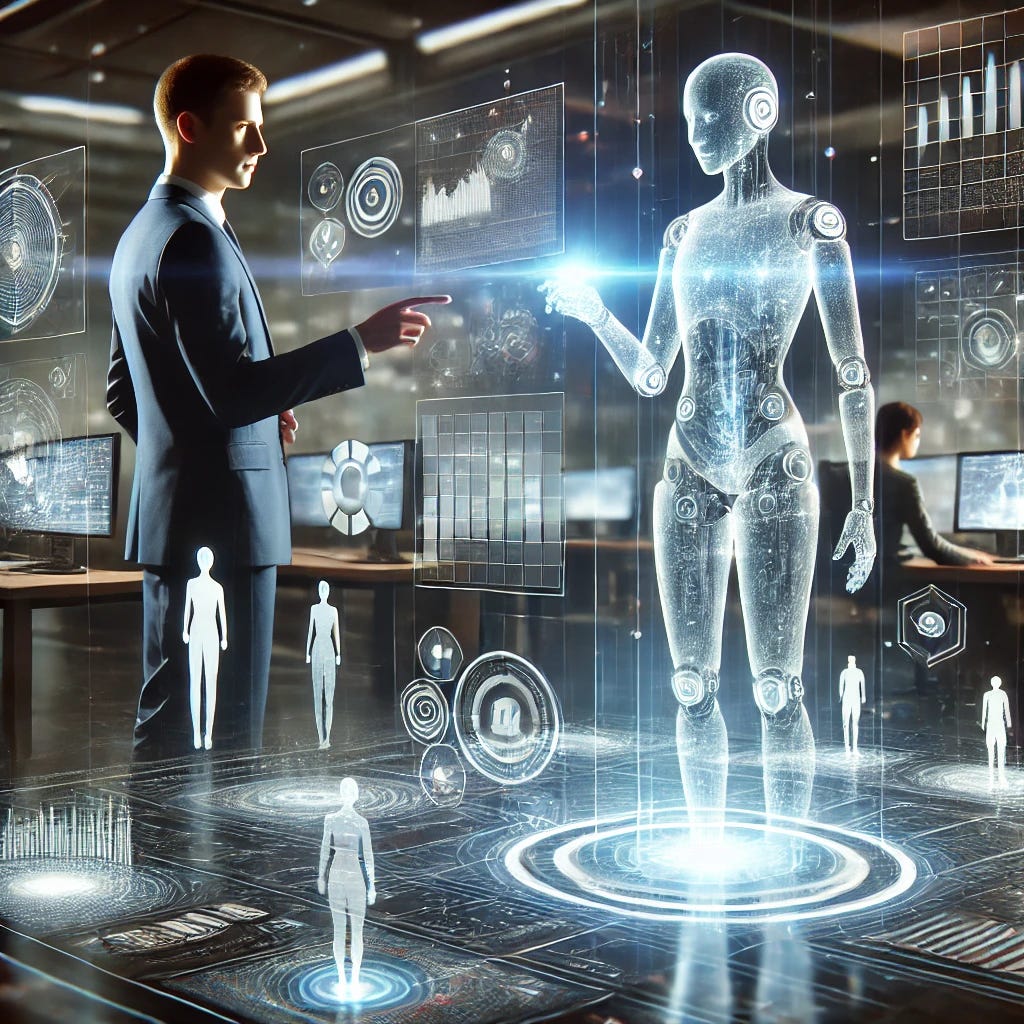Are We Really Better Together? Rethinking Human-AI Collaboration

We're constantly told that the future is all about humans and AI working hand-in-hand. But what if that's not always the case? What if, sometimes, we're actually worse off when we try to combine our brains with algorithms?
I've been digging into some fascinating research that challenges the conventional wisdom around human-AI collaboration [1]. A recent systematic review and meta-analysis of over 100 experiments reveals a surprising truth: on average, these combined systems don't achieve "synergy" [1, 2]. In fact, they often perform worse than the best of either humans or AI working solo [1, 3].
The Dark Side of Collaboration: When AI Makes Us Worse
The study's findings aren't just abstract statistics; they point to some very real challenges [1]:
Decision-Making: In tasks requiring choices between options, like medical diagnoses or financial investments, adding AI into the mix can actually decrease performance [1, 4]. It seems we're not always good at knowing when to trust the algorithm and when to rely on our own judgment.
Over-Reliance and Automation Bias: We humans have a tendency to either blindly accept what the AI tells us (over-reliance) or dismiss it out of hand because we don't trust "machines" (under-reliance) [5, 6].
The Cognitive Cost: As AI takes over more routine tasks, we risk "cognitive offloading," essentially outsourcing our thinking and problem-solving skills to the machine [7, 8]. This can lead to a decline in our own abilities to analyze, evaluate, and draw conclusions [7-23].
But It's Not All Doom and Gloom: Finding the Synergy Sweet Spot
Now, before we throw our laptops out the window and declare the AI revolution a bust, there's another side to the story [1]. The research also highlights areas where human-AI collaboration can be genuinely powerful:
The Creative Spark: When it comes to tasks that involve generating new content – writing, design, brainstorming – AI can be a fantastic partner [1, 4]. It can help us overcome creative blocks, explore new ideas, and produce things we couldn't have on our own.
Human Expertise Matters: When humans bring strong skills and knowledge to the table, they're better at knowing how to integrate AI insights effectively [24, 25]. In these cases, the combined system can indeed outperform either humans or AI alone [25].
The Right Process: The key isn't just what technology we use, but how we use it [26]. We need to design processes that leverage the strengths of both humans and AI, assigning tasks to whichever is best suited for the job [26].
Navigating the New Landscape: Recommendations for the Future
So, how do we make sure we're building human-AI collaborations that truly enhance our abilities, rather than diminish them? Here are a few recommendations based on the research:
Balance is Key: Don't let AI become a crutch [7]. Actively seek opportunities to engage your own cognitive skills, even as you use AI tools.
Become a Verification Expert: In a world of AI-generated content, the ability to verify information is more critical than ever [27-29]. Cross-reference AI outputs with reputable sources and trust your own expertise [27].
Embrace "Task Stewardship": As AI handles more of the execution, focus on guiding and monitoring the AI, ensuring the final product meets your standards [28, 29].
Rethink Training: Education and training should emphasize critical thinking, problem-solving, and information verification, equipping workers with the skills to thrive in an AI-augmented world [29].
Design for Synergy: When building human-AI systems, carefully consider the strengths of each partner and design processes that allow them to work together effectively [26].
The future of work isn't about replacing humans with AI [30]. It's about finding the right balance, the right processes, and the right mindset to create collaborations that are truly greater than the sum of their parts [31]. It requires a critical understanding of where AI excels and where human judgment remains essential [31, 32].
https://doi.org/10.1038/s41562-024-02024-1




